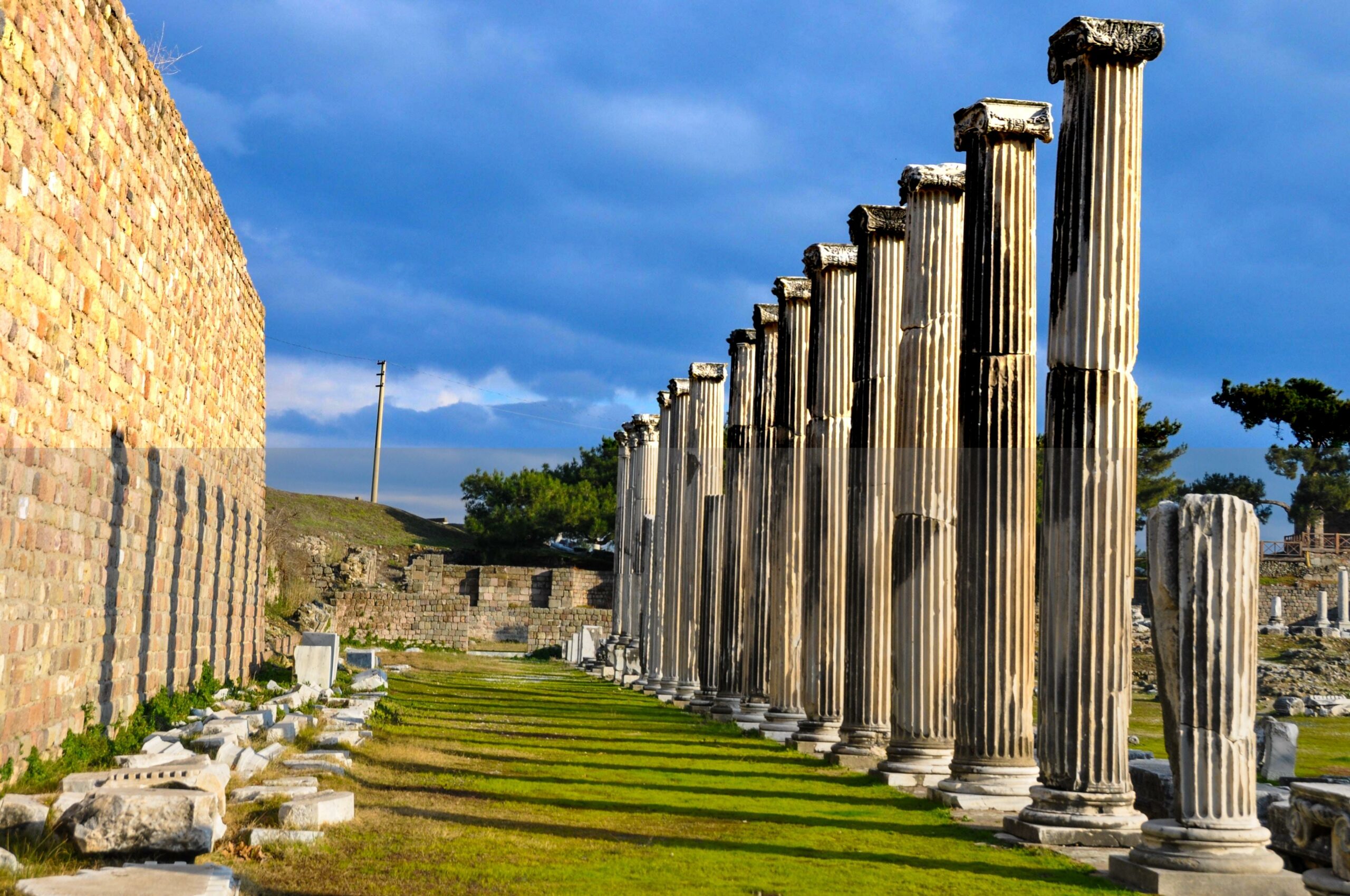When delving into the fascinating history of ancient civilizations, few topics capture the imagination quite like the concept of citizenship. In the realm of ancient Athens, a city known for its intellectual and cultural accomplishments, the dynamics surrounding citizenship were both intricate and intriguing. As we journey through time and explore the evolution of citizenship in ancient Athens, an enigmatic question arises: who exactly qualified as a citizen in this remarkable city-state? Unraveling the intricate tapestry of ancient Athenian citizenship is a marvelous undertaking, one that will not only shed light on an extraordinary era but also deepen our understanding of human society itself.
Who was considered a citizen in ancient Athens
In ancient Athens, the concept of citizenship was quite different from what we understand today. Citizenship was not granted to everyone living within the city-state, but only to a specific group of individuals who met certain criteria. Let’s dive into the details and unravel who was considered a citizen in ancient Athens.
Criteria for Athenian Citizenship:
Athenian citizenship was primarily limited to free-born men who were born to Athenian parents. This meant that only individuals with Athenian ancestry were eligible for citizenship. It was a way to ensure that citizenship remained within a specific lineage and was not easily attainable by outsiders.
Another important requirement was age. To be considered a citizen, individuals had to be at least eighteen years old. This ensured that they were mature enough to participate in the responsibilities and obligations that came with citizenship.
The Role of Military Service:
Military service played a crucial role in determining Athenian citizenship. Completion of military service was a mandatory requirement for those aspiring to be citizens. It served as a rite of passage and a test of one’s commitment to the city-state. By serving in the military, individuals demonstrated their loyalty, bravery, and willingness to protect Athens.
Exclusions from Citizenship:
While certain individuals met the criteria mentioned above, it’s essential to note that citizenship was not universal in ancient Athens. Women, children, and slaves were not considered citizens and therefore did not have the right to vote or participate in the political affairs of the city-state.
In addition to excluding women, children, and slaves, Athens also had measures in place to hold citizens accountable for their responsibilities. Citizens who failed to fulfill their duties, such as neglecting military service, could face penalties. These penalties sometimes included being fined or marked with red paint as a public symbol of their negligence.
The Athenian Assembly:
The Athenian Assembly was an essential feature of the democratic system in Athens. As citizens, individuals had the right to participate in the assembly and vote on various matters concerning the city-state. This inclusivity in decision-making was a distinguishing factor of Athenian citizenship.
Citizenship in Other Greek City-States:
It’s important to understand that citizenship rights varied among different Greek city-states. Each polis, or city-state, had its own criteria for citizenship. While ancient Athens had its specific requirements, Sparta, for example, had its own set of rules. Spartan citizens were not only granted the right to participate in the Citizen’s Assembly but were also obliged to serve in military service, just like their Athenian counterparts.
Final Thoughts:
In conclusion, understanding who qualified as a citizen in ancient Athens is key to fully grasping the dynamics of this intriguing period. Athenian citizenship was only granted to free-born men with Athenian parentage, who completed military service. This excluded women, children, and slaves from citizenship rights. The Athenian Assembly provided citizens with the opportunity to actively participate in the democratic process, setting Athens apart from other city-states. Remember, citizenship in ancient Athens was not determined solely by birthplace or residence, but rather by specific criteria and obligations that shaped the identity and responsibilities of the citizens.
“Unraveling the complex dynamics of citizenship in ancient Athens sheds light on the privileged position of free-born men while highlighting the exclusions that defined this ancient society.”
In ancient Athens, citizens played a pivotal role in shaping the city-state’s political landscape. Have you ever wondered who were considered citizens in ancient Athens? Discover the answer to this intriguing question and delve into the fascinating world of Athenian society. Click here to explore more about who were considered citizens in ancient Athens: Who were considered citizens in ancient Athens?
A Day in the Life of an Ancient Athenian: Insights into Ancient Athenian Society
[youtube v=”ar8S6virCwM”]
Introduction:
Welcome to a fascinating glimpse into the daily life of an ancient Athenian. In this article, we will explore the fourth year of the Peloponnesian War, a conflict between Athens and Sparta, and delve into the lives of two Athenian citizens, Archaeas and Dexalea. Through their experiences, we will gain insights into the dynamics and exclusions of ancient Athenian society.
The Peloponnesian War and Athenian Society:
In 427 BCE, Athens and Sparta were engaged in the Peloponnesian War, one of the most significant internal conflicts in ancient Greek history. Athens, unable to match Sparta’s military prowess on land, had retreated within the walls of their city and port. However, despite the difficult conditions, city life continued.
Archaeas, a painter of high-class pottery, and Dexalea, his wife, lived in the center of Athens. As a relatively well-off citizen, Archaeas took a keen interest in the city’s affairs, while Dexalea, like many women, was unable to participate in politics or own property.
The Role of Slaves and Family Life:
The family owned slaves, originally from Thrace, who aided with household chores and the upbringing of their children. Phylon, a pedagogue, supervised the education of their son, teaching him reading and writing. Despite societal expectations, Archaeas and Dexalea were thankful that their three surviving children, two daughters and a son, had reached adulthood.
The Athenian Assembly and Decision-Making:
Archaeas, as an Athenian citizen, attended a meeting of the ecclesia, the assembly of citizens, which took place at dawn. The square, known as the agora, buzzed with fellow citizens as they gathered to discuss the day’s agenda. On this particular day, the main topic was what to do with the people of Mytilene, a city on Lesbos, which had revolted against Athenian rule.
There was a passionate debate among the citizens, with some advocating for mercy and others for vengeance. Eventually, a motion was proposed to execute all the Mytilenians and enslave their women and children. The majority of citizens raised their hands in favor, leading to a contentious decision.
The Consequence of Decision-Making:
Returning home, Archaeas shared the outcome of the debate with Dexalea. While he supported the decision, Dexalea expressed her belief that such indiscriminate killing and enslavement were harsh and counterproductive. This disagreement between them showcased the diverse opinions held within Athenian society.
The Second Debate and an Unprecedented Turn of Events:
Before dawn, something unprecedented occurred – the council called another meeting. Heralds circled throughout Athens, announcing the meeting. This second debate was equally intense, and a new resolution to execute only the leaders of the revolt narrowly passed. However, due to the timing, a ship had already been dispatched with orders to carry out the initial resolution. To rectify the situation, another ship was quickly sent to countermand the order, resulting in a race against time.
Conclusion:
This glimpse into the life of an ancient Athenian reveals the intricacies and contradictions of Athenian society during the Peloponnesian War. It highlights the limited rights of women, children, and slaves, contrasting their exclusion from citizenship and political rights with the privileges and responsibilities of Athenian citizens.
As we delve deeper into the history of ancient civilizations, we gain a greater appreciation for the underlying dynamics and exclusions that shaped their societies. By understanding the nuances of Athenian citizenship, we can unravel the complexities of an ancient world that continues to intrigue us.
“Through the lives of Archaeas and Dexalea, we witness the tensions and differing perspectives within Athenian society.”
FAQ
Q: Who was considered a citizen in ancient Athens?
A: In ancient Athens, only free men who were born from two Athenian parents, over eighteen years old, and completed their military service were considered citizens.
Q: Were women considered citizens in ancient Athens?
A: No, women were not considered citizens in ancient Athens and therefore could not vote.
Q: Could slaves be citizens in ancient Athens?
A: No, slaves were not considered citizens in ancient Athens. Citizenship was limited to free men who met specific criteria.
Q: What happened if citizens did not fulfill their duty in ancient Athens?
A: Citizens who did not fulfill their duty in ancient Athens could be fined and sometimes marked with red paint as a form of public humiliation.
Q: How were citizenship rights determined in ancient Greece?
A: Citizenship rights in ancient Greece were determined by individual poleis, or city-states. Each polis had its own criteria for citizenship.
- China II Review: Delicious Food & Speedy Service - April 17, 2025
- Understand Virginia’s Flag: History & Debate - April 17, 2025
- Explore Long Island’s Map: Unique Regions & Insights - April 17, 2025
















